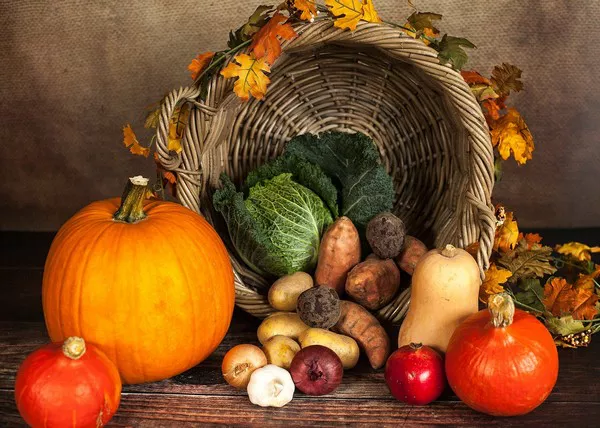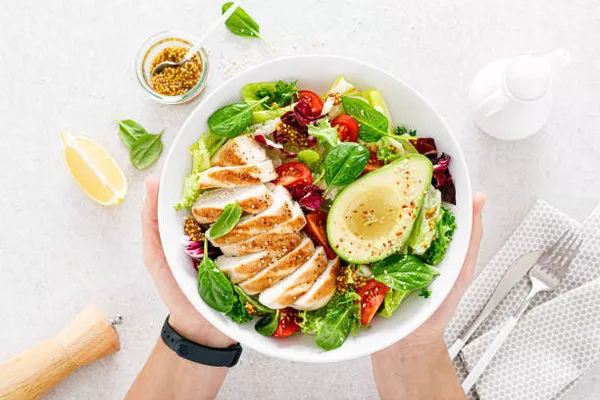When it comes to achieving lustrous and vibrant hair, the key lies not only in the right hair care routine but also in nourishing your hair from within. Essential vitamins play a crucial role in maintaining the health, growth, and strength of your hair. In this comprehensive article, we will explore the vitamins that are good for hair, shedding light on how proper nutrition can contribute to your crowning glory.
1. Vitamin A: Fueling Hair Growth
Vitamin A is a vital nutrient that fuels hair growth and overall hair health. It supports the production of sebum, an oily substance that moisturizes the scalp and prevents hair from becoming dry and brittle. This nourishes the hair follicles, creating an optimal environment for hair growth. Foods rich in vitamin A include carrots, sweet potatoes, spinach, kale, and dairy products.
2. B-Vitamins: A Multifaceted Approach to Hair Health
The B-vitamin family, including Biotin (B7), Niacin (B3), Folate (B9), and others, is essential for maintaining healthy hair. Biotin, in particular, is well-known for its role in promoting hair growth, reducing hair thinning, and enhancing the overall texture of hair. Niacin improves blood circulation to the scalp, ensuring that the hair follicles receive the necessary nutrients for optimal growth. Foods rich in B-vitamins include eggs, nuts, seeds, poultry, fish, leafy greens, and fortified cereals.
3. Vitamin C: Collagen Production for Hair Strength
Vitamin C is a potent antioxidant that supports collagen production. Collagen is a structural protein that strengthens the hair shaft and promotes hair elasticity, reducing the risk of breakage. Additionally, vitamin C aids in the absorption of iron, another essential mineral for healthy hair growth. Citrus fruits, strawberries, bell peppers, and broccoli are excellent sources of vitamin C.
4. Vitamin D: Preventing Hair Loss
Vitamin D is essential for maintaining hair follicle cycling and promoting hair growth. Low levels of vitamin D have been associated with hair loss and thinning. Ensuring adequate exposure to sunlight and consuming fortified dairy products, fatty fish like salmon and mackerel, and egg yolks can help maintain healthy levels of vitamin D.
5. Vitamin E: Protection from Oxidative Stress
Vitamin E is a powerful antioxidant that protects the hair from oxidative stress caused by free radicals. It helps maintain a healthy scalp, which is crucial for optimal hair growth. Nuts, seeds, spinach, and broccoli are rich sources of vitamin E.
6. Iron: Nourishing Hair Follicles
Iron is not a vitamin, but it is a mineral that plays a vital role in hair health. Iron deficiency can lead to hair loss, as it affects the supply of oxygen and nutrients to the hair follicles. Incorporating iron-rich foods such as red meat, spinach, lentils, and fortified cereals can help prevent hair loss and promote hair growth.
7. Zinc: Boosting Hair Growth
Zinc is essential for supporting the repair and growth of hair tissues. It also helps maintain the oil glands around hair follicles, which are responsible for keeping the scalp moisturized and healthy. Oysters, beef, pumpkin seeds, and lentils are excellent sources of zinc.
8. Omega-3 Fatty Acids: Nourishing the Scalp
Omega-3 fatty acids are known for their anti-inflammatory properties, which can help maintain a healthy scalp. A nourished scalp creates a favorable environment for hair growth and reduces the risk of dry, brittle hair. Fatty fish like salmon and mackerel, flaxseeds, chia seeds, and walnuts are rich in omega-3 fatty acids.
9. Protein: Building Blocks of Hair
Proteins are the building blocks of hair, making them essential for maintaining strong and healthy hair. Diets rich in high-quality proteins provide the necessary amino acids required for hair growth. Lean meats, poultry, fish, beans, and legumes are excellent sources of protein.
10. Amino Acids: Keratin Production
Amino acids are vital for the synthesis of keratin, the protein that constitutes the majority of hair. Ensuring an adequate intake of amino acids helps improve hair texture and strength, reducing the risk of breakage and split ends.
Foods and Dietary Recommendations for Hair-Boosting Vitamins
Incorporating certain foods into your diet can naturally provide the vitamins essential for boosting hair health. Here are some dietary recommendations to obtain hair-boosting vitamins:
1. Vitamin A: Consume foods rich in beta-carotene, a precursor to vitamin A, such as carrots, sweet potatoes, spinach, kale, and apricots.
2. Vitamin B Complex: Include sources of B-vitamins like Biotin (B7) by eating eggs, nuts, seeds, and sweet potatoes. Niacin (B3) can be found in poultry, fish, whole grains, and mushrooms. Folate (B9) is abundant in leafy greens, beans, peas, and fortified cereals.
3. Vitamin C: Enjoy citrus fruits like oranges, lemons, and grapefruits, as well as strawberries, bell peppers, and broccoli for a good dose of vitamin C.
4. Vitamin D: Get sufficient exposure to sunlight, as it triggers the production of vitamin D in the body. Also, include fortified dairy products, fatty fish like salmon and mackerel, and egg yolks in your diet.
5. Vitamin E: Incorporate foods like nuts (almonds, hazelnuts), seeds (sunflower seeds, pumpkin seeds), spinach, and broccoli into your meals.
6. Iron: Include red meat, spinach, lentils, and fortified cereals to meet your iron requirements.
7. Zinc: Enjoy oysters, beef, pumpkin seeds, and lentils for a good intake of zinc.
8. Omega-3 Fatty Acids: Consume fatty fish (salmon, mackerel), flaxseeds, chia seeds, and walnuts to obtain omega-3 fatty acids.
9. Protein: Ensure a diet rich in lean meats, poultry, fish, beans, and legumes to meet your protein needs.
10. Amino Acids: Include sources of complete proteins, such as meat, fish, dairy products, and soy products, to get essential amino acids.
Additionally, minimize the consumption of processed foods and excessive sugar, as they may negatively impact hair health.
Vitamin-Rich Natural Remedies and DIY Hair Masks
There are several natural remedies and DIY hair masks that you can make at home using vitamin-rich ingredients to promote hair growth and strength. Here are some effective ones:
1. Avocado and Banana Hair Mask (Vitamins A, B, E):
Mash one ripe avocado and one ripe banana together.
Add a tablespoon of honey and a tablespoon of coconut oil.
Mix until you get a smooth paste.
Apply the mask to damp hair, focusing on the roots and ends.
Leave it on for 30 minutes to an hour, then rinse thoroughly with cool water.
2. Yogurt and Egg Hair Mask (Vitamins B, D, Protein)
Take half a cup of plain yogurt and mix it with one beaten egg.
Add a tablespoon of honey and a few drops of essential oil (e.g., lavender or rosemary) for a pleasant fragrance.
Apply the mixture to your hair and scalp, massaging gently.
Cover your hair with a shower cap and leave the mask on for 30 minutes.
Rinse it off with lukewarm water and a mild shampoo.
3. Coconut Milk and Aloe Vera Hair Mask (Vitamins C, E, Folate)
Mix half a cup of fresh coconut milk with two tablespoons of aloe vera gel.
Optionally, add a teaspoon of vitamin E oil for an extra boost.
Apply the mixture to your hair, focusing on the roots and tips.
Let it sit for 1 to 2 hours, then rinse thoroughly with water.
4. Fenugreek Seed Hair Mask (Vitamins A, B, C, Iron)
Soak two tablespoons of fenugreek seeds in water overnight.
Grind the soaked seeds into a paste the next morning.
Add a tablespoon of yogurt and a tablespoon of lemon juice to the paste.
Apply the mixture to your scalp and hair, covering it with a shower cap.
Leave it on for 30 minutes to an hour before rinsing off with cool water.
5. Castor Oil and Rosemary Oil Scalp Massage (Vitamin E, Biotin)
Mix equal parts of castor oil and rosemary oil in a bowl.
Gently massage the mixture into your scalp using circular motions.
Leave it on overnight or for at least 2 hours before washing your hair.
These DIY hair masks can be used once a week or as needed to nourish your hair with essential vitamins and promote growth and strength. Remember to perform a patch test before applying any new ingredients to ensure you are not allergic to them. Additionally, be consistent with your hair care routine, and combine these treatments with a well-balanced diet and good hair care practices for optimal results.
Conclusion
Ensuring an intake of essential vitamins through a well-balanced diet is crucial for promoting healthy hair growth, preventing hair loss, and maintaining vibrant locks. Vitamins A, B complex, C, D, E, along with iron, zinc, omega-3 fatty acids, protein, and amino acids, collectively contribute to the overall health and strength of your hair. Coupled with proper hair care practices and a healthy lifestyle, providing your hair with the right nutrients will unlock the secret to achieving the gorgeous and confident locks you desire. Always consult with a healthcare professional or a registered dietitian before starting any new supplementation regimen to ensure it aligns with your individual needs and health status. With the right approach, you can confidently embrace your crowning glory and radiate hair health and beauty.
[inline_related_posts title=”Related Topics” title_align=”left” style=”list” number=”3″ align=”none” ids=”937,804,934″ by=”categories” orderby=”rand” order=”DESC” hide_thumb=”no” thumb_right=”no” views=”no” date=”yes” grid_columns=”1″ post_type=”” tax=””]

































